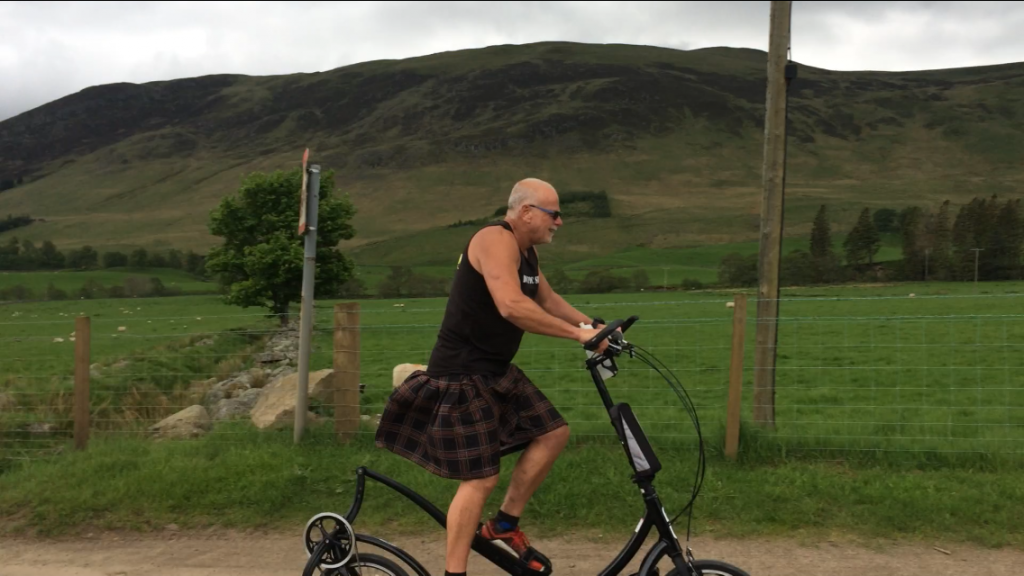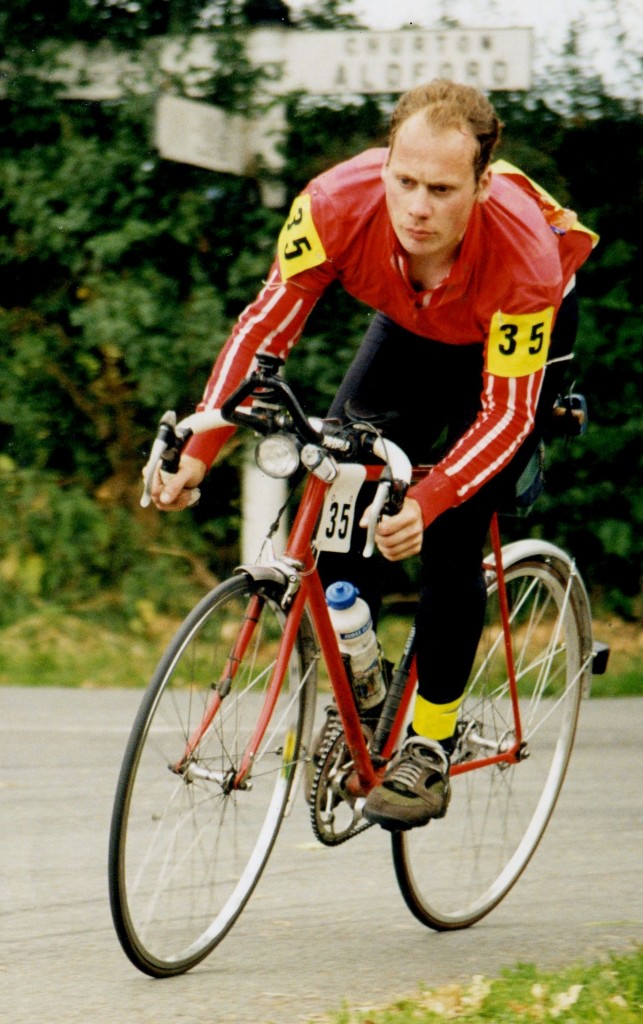By Idai Makaya (15 Nov 2014):
The article below is part of the training and preparation blog for the ElliptiGO Ultra Endurance Team 1,230-km (765-mile) Challenge at PBP 2015, which each rider was training to complete within the 90-hour time-limit…
I want to share my thoughts and experiences with the rest of the ElliptiGO Endurance Team on this topic, as it is definitely pertinent to PBP 2015. I strongly feel that handling fatigue and being able to adapt to unexpected requirements to ride for longer than planned are important skills for success at randonneuring – essential on an ElliptiGO.
 In line with my own experiences, the studies I’ve looked at – and especially the guys who have tackled sleep deprivation really well in long distance cycling – I can categorically state the way to ‘train’ for sleep deprivation is absolutely NOT to deprive yourself of sleep.
In line with my own experiences, the studies I’ve looked at – and especially the guys who have tackled sleep deprivation really well in long distance cycling – I can categorically state the way to ‘train’ for sleep deprivation is absolutely NOT to deprive yourself of sleep.
*You become sleep resistant by ‘oversleeping’ – NOT under-sleeping.*
You can build a ‘sleep reserve’ or ‘sleep bank’ using a 2:1 ratio (of waking to sleeping). This means that for every 2 hrs you spend awake you must sleep for 1 hour. That’s a requirement for 8 hours sleep a day just to break even. We call this balancing processes “sleep banking“.
If you increased to 9 hours sleep a day you are building a ‘sleep reserve/bank’ of 1 hour per day. So anyone who sleeps for 10 hours a day becomes considerably more resistant to sleep deprivation than people who sleep for 8 hours.
Also, for every hour of additional sleep above 8 hours your general performance at all activities (including physical ones) improves. A recent study showed that sleeping 10 hours a night has similar performance enhancing effect on athletes to illegal drugs.
The average person can do at least 40 hours of riding without special preparation (unless sleep deprived already – from getting less than 8 hours sleep a night). When I recently did 52 hours awake (on the weekend I did my 400-mile Audax) it was done specifically to test my ‘sleep bank’ experiment and prove if the process worked (because sleep deprivation was my downfall in the Mille Cymru ride).
I was taught a lot of this sleep banking by the former Audax mileage record holder Steve Abraham – who happens to live near me. He is same age as me (40) and started Audax riding in his teens. In 2015 he’s going for the 1 year total mileage world record (that’s more than 205-miles per day, for a full year).
Steve (pictured below) really knows what he’s talking about, relating to sleep deprivation and (like me) he strongly believes you can never be good at ultra-cycling if you’re not resistant to sleep deprivation.

Endurance rider Steve Abraham…
So don’t try to deprive yourself of sleep – thinking it will help you become more resistant to sleep deprivation – because quite the opposite actually happens… Also note you must rebuild your sleep bank whenever you do events that deprive you of sleep.
So you must make up for losing the 2:1 ratio whenever you stay awake for very long periods during PBP 2015 qualifying rides – or you may eventually break in the PBP 2015 event itself. You do this ‘making up’ by sleeping extra hours to ‘catch up’ to the 2:1 ratio after any brutal endurance event with little or no sleep.
Sleep researchers suggest this ‘balancing’ process probably goes on all your life – and if overall your lifetime ratio is worse than 2:1 (say 2.5:0.5) you are chronically sleep deprived. If it is better than 2:1 (say, 1.9: 1.1) you are overall in lifetime sleep surplus (you have a sleep bank).
The latest big study ON ATHLETES went to great lengths to stress there is NO UPPER LIMIT to a sleep bank.
If you could sleep for 12 hours a day you would probably be better than if you slept for 11 hours, or 10 hours – or 7 hours. I suspect there’s a limit to all this. Personally, I get really uncomfortable if I sleep for too long, it becomes really physically uncomfortable. I think the studies are including shorter additional naps as well as a night’s sleep (something I also struggle with – I can only sleep in one long stretch per day – I can’t nap easily).
The high mileage Audax guys I have spoken to seem to agree with the studies – and many of them spend ALL their free time either riding or sleeping (some of the highest mileage Audax guys don’t even work, because they are retired).
Summary:
*TO KEEP A LONG STORY SHORT – THE MORE YOU SLEEP, THE BETTER.*
Sleep researchers strongly uphold this logic (and although I don’t routinely go on what many sleep researchers say – UNLESS they have studied the same ultra-cycling conditions we are preparing for – which most of them haven’t), I do generally agree with this particular viewpoint (based on my own – and other credible athletes’ – actual experiences…
